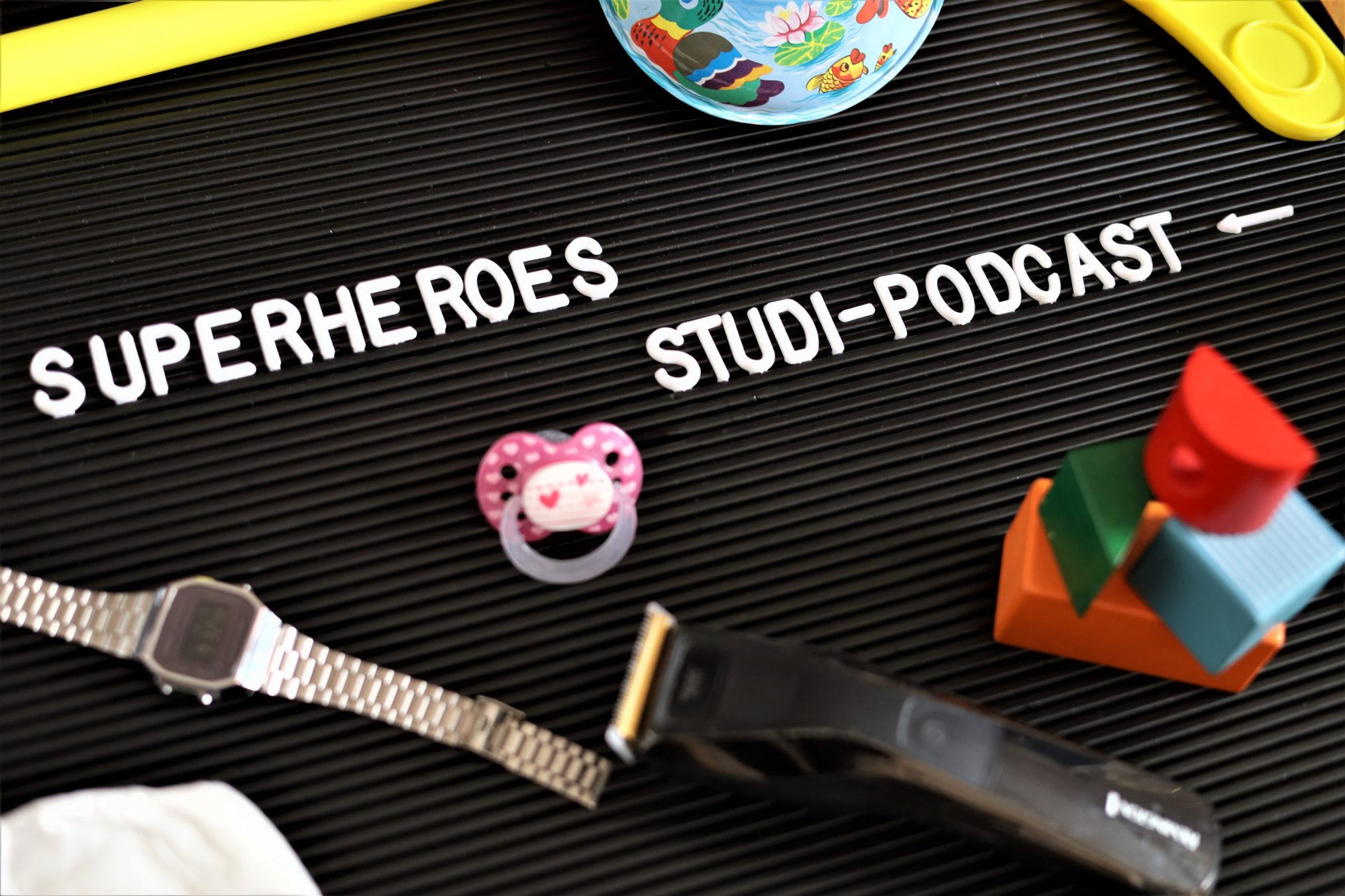Connecting teaching, research and science communication Research on fathers: Students have their say in the "Superheroes" podcast
During the Covid pandemic, new, digital ideas as well as creative ways of teaching had to be developed and established. One example: the “Superheroes-Studi-Podcast”. The creators combine teaching, research and science communication in this podcast. The format was developed by students at the Department of Sociology with a focus on work and organisation at Technische Universität Braunschweig under the guidance of researchers as part of the seminars “Vereinbarkeit von Beruf und Familie bei Vätern. Inklusions- und Exklusionprozesse von Vätern in Elternzeit in Betrieb, Familie und Gesellschaft” (Compatibility of work and family among fathers. Inclusion and exclusion processes of fathers on parental leave in the company, family and society) and “Moderne Männer, aktive Väter? Haben Männer ein Vereinbarkeitsproblem? Betriebliche und gesellschaftliche Prozesse einer familienfreundlichen Arbeitsorganisation für Männer” (Modern men, active fathers? Do men have a compatibility problem? Managerial and social processes of family-friendly work organisation for men). A total of five episodes were produced. Three more will be added at the end of the 2022 summer semester.
The sociology students have dealt with various topics surrounding masculinity, fathers and fatherhood. These include questions about parental leave, homosexual fatherhood or “What do men experience when they become fathers?”. They reflected on the insights they gained during their seminar based on academic literature and media contributions. In the podcast, they discuss the different challenges that fathers and also mothers face based on their personal experiences. In some episodes, fathers report on their everyday life.

Five episodes of the “Superheroes-Studi-Podcast” are already available. Three more will follow in the 2022 summer semester. Photo credit: Kim Bräuer/TU Braunschweig
The podcast is connected to the research project “You don’t need to be Superheroes – Einblicke in die vielfältigen Lebenslagen von Vätern” (Insights into the diverse life situations of fathers), which the Chair of Sociology, Work and Organisation is conducting together with the Faculty of Social Work and Health at the Fachhochschule Kiel and the Family Office at TU Braunschweig. The project deals with the diverse conceptions of fatherhood, balancing work and family, and the special challenges that fathers have to cope with in the face of the Covid pandemic. It examines how companies, political actors, fathers’ networks and counselling centres, among others, can support fathers in meeting their demands on themselves as fathers, partners and, if necessary, as employees.
A central concern of the project is to share both the research process and the results of the research with the interested public through targeted scientific communication and to offer opportunities for informed discussion. At the same time, the researchers would like to make the results usable for company measures to promote ‘father-friendly work design’.
Making research on fathers accessible to all
Dr Kim Bräuer, head of the research project, has been concerned for years that more and more people are losing faith in science and are often not available for social science research projects. With the podcast and the accompanying Instagram account, the aim is to bring father research into the headphones and onto the displays of people who do not have an academic background or have turned away from research, explains the researcher: “At the same time, with the release of the podcast, I want to appreciate the achievements and the individual commitment that the students have made. After an assessment, their study or examination performance often ends up on the teacher’s PC and never gets any attention again. Our podcast stands out because the students bring the listeners into their discussion circle.”
Student Judith Weinecke is pleased about the opportunity to make social science tangible by participating in the podcast. After all, there are always people behind the data: “Learning how differently the interviewed men live their roles as fathers and partners has expanded my own ideas about fatherhood. I also found it great that each podcaster was able to contribute to the project on their own initiative and responsibility – something that is not always visible in written submissions.”
Student Levin Mehrbaksh recorded the podcast together with his partner at the time and finds the medium suitable for teaching because it is very popular right now: “However, you should always transcribe podcasts as well for accessibility,” Mehrbaksh suggests.
Anne-Christin Eggers, consultant for Family-friendly higher education in the Family Office at TU Braunschweig, thinks that the podcast enriches how the topic of fatherhood is viewed. It is also interesting that the student podcasters are often not yet affected by the topic: “Topics such as role distribution and patterns within a partnership, dealing with one’s own history and the vulnerability of fathers encourage them to ask questions and think about their own ideas.
Dialogue with Instagram community
The individual episodes of the podcast are available free of charge on the project’s homepage and are also presented on the research project’s Instagram account. Here, an exchange with the Instagram community interested in fathers is also possible beyond the academic discussion.
